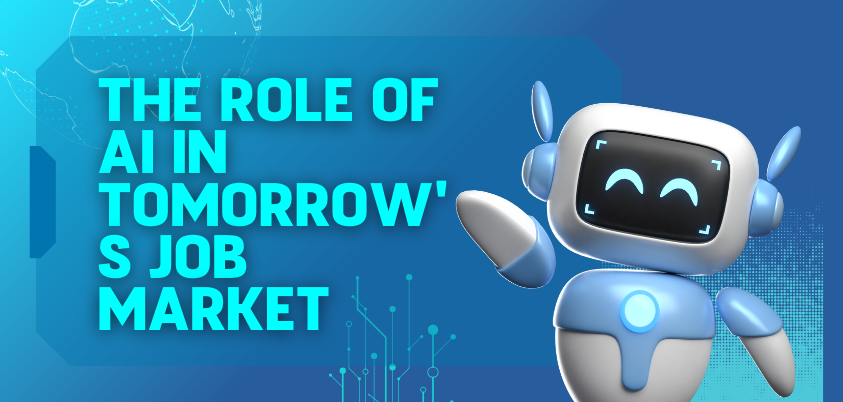
SEO Tips for the AI Era: Staying Ahead of the Curve
1. Embrace Intent-Based Search Optimization
AI's natural language processing capabilities have made search engines better at understanding user intent. Gone are the days when you could rely solely on keywords to drive traffic. Now, it's essential to understand what the user is truly looking for when they type a query.
- Focus on Topic Clusters: Instead of just targeting a single keyword, create content that answers a broader range of related questions. This helps search engines understand your content’s relevance to user queries.
- User Intent Analysis: Use tools like Google Search Console and SEMrush to analyze search intent. Tailor your content to fulfill informational, navigational, or transactional intents.
2. Quality Content is King, But AI Can Help You Create It
AI is revolutionizing content creation, but it's essential to remember that quality should always be the priority. Tools like GPT-based models can generate content quickly, but they need human input for depth, nuance, and optimization.
- Content Personalization: AI can help personalize content to different audience segments. Use tools that analyze user behavior and preferences to deliver tailored content.
- AI-Driven Content Ideas: Leverage AI tools to analyze competitors and identify gaps in your content. By doing so, you can create more targeted and in-demand content.
3. Optimize for Voice Search and Conversational Queries
With AI-driven voice assistants like Siri, Alexa, and Google Assistant becoming a norm, optimizing for voice search is crucial. Voice search queries tend to be more conversational and longer than traditional text-based searches.
- Focus on Natural Language: People use full sentences when searching by voice, so adapt your content to reflect this. Aim to answer questions directly and succinctly.
- Featured Snippets and Position Zero: Voice assistants often pull information from featured snippets. Structure your content in a way that makes it easy for Google to extract and display concise answers.
4. Improve User Experience (UX) for AI Algorithms
AI isn't just limited to understanding search queries—it's also improving the way search engines evaluate user experience. Google's Core Web Vitals, which measure aspects like page speed, interactivity, and visual stability, are important factors in SEO rankings.
- Mobile Optimization: AI-powered algorithms prioritize mobile-friendly websites. Ensure your site is responsive and loads quickly on all devices.
- Page Experience: Improve your website’s user experience by making it easy to navigate, ensuring fast loading times, and delivering a smooth mobile experience.
5. Leverage AI for SEO Analytics
AI tools are a game-changer when it comes to analyzing your SEO efforts. They can uncover patterns, predict trends, and provide actionable insights that were previously difficult to identify.
- AI-Driven SEO Tools: Platforms like Clearscope, MarketMuse, and Frase use AI to help you optimize content by suggesting keyword variations, analyzing competitor content, and predicting content performance.
- Predictive Analytics: AI can predict the impact of changes you make to your website, allowing you to test SEO strategies in a more efficient way.
6. Keep an Eye on Google’s AI-Powered Updates
Google continues to roll out AI-powered updates, such as RankBrain, BERT, and the recent MUM (Multitask Unified Model), which aim to enhance its ability to understand and process complex queries. Staying informed about these updates is crucial for adjusting your SEO strategy.
- Adapt to Algorithm Changes: Keep an eye on Google’s updates and how they impact search results. For instance, BERT focuses on understanding context, which means content that addresses user queries in depth will perform better.
- Semantic SEO: With AI updates focusing on semantic search, ensure that your content covers topics comprehensively and uses synonyms and related terms to provide a richer, more valuable answer.
7. AI-Powered Backlink Analysis
Backlinks remain an important SEO factor, but AI is making it easier to analyze and track backlinks in real time. AI tools can assess the quality of links and suggest opportunities for backlinking from high-authority websites.
- Automated Backlink Audits: Use AI-driven tools to perform regular backlink audits. These tools can help identify harmful links and opportunities to build high-quality backlinks.
- Link Quality Over Quantity: Focus on acquiring backlinks from authoritative sources rather than simply building a large number of links. AI tools can help you pinpoint high-value opportunities.
Conclusion
The AI revolution is here, and it’s transforming the way we approach SEO. By understanding how AI influences search behavior, content creation, and ranking factors, you can fine-tune your SEO strategies to stay competitive in the digital space. Keep up with technological advancements, continuously improve your content, and leverage AI tools to stay ahead of the competition. With the right mindset and the right tools, the AI era can be an opportunity for SEO growth rather than a challenge.




(0) Comment
No comments yet.